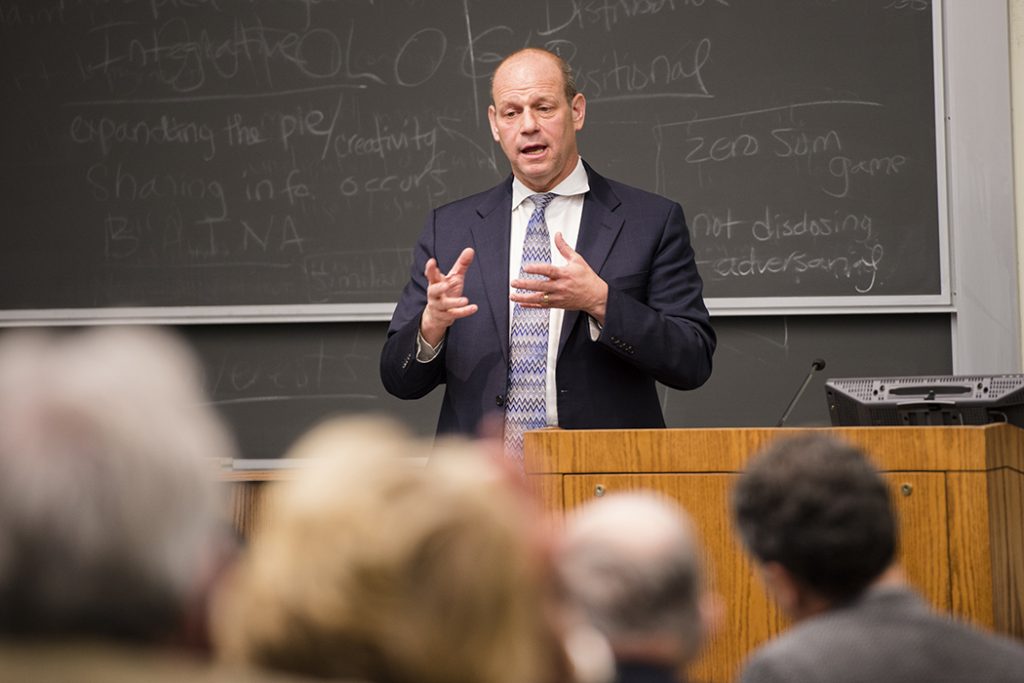Conversations on immigration policy often highlight the tension between humanitarian objectives and national security issues. On the one hand, America has the potential to offer protection and opportunity to thousands of families abroad, whose safety and futures are at risk. On the other hand, there is concern about the reliability of the immigrant screening process and the possibility of dangerous individuals entering the country.
“There will always be a few bad guys who come through,” acknowledged León Rodríguez ‘88, director of the United States Citizenship and Immigration Services (USCIS), as he delivered BC Law’s annual Owen M. Kupferschmid Holocaust/ Human Rights Project lecture January 14. However, Rodríguez stated his confidence in the USCIS’s intensive screening procedures. Additionally, he mentioned that his team is developing a program that will track suspicious individuals on social media, as they have found that those individuals will usually communicate their harmful intentions to the online community.
Rodríguez (the subject of the prior BC Law Magazine feature “Guardian of the Melting Pot”) moved on to discuss a more positive side of immigration policy, explaining that it “brings together all the interests and values of our society.” He noted that in addition to human rights and national security, immigration policy also shapes the American values of economic vitality and family unity.
A large part of the USCIS’s work today concerns the refugee crises in Syria and Iraq. There are twenty-three million people in Syria, and currently, seven million of them are displaced while four million of them reside in other countries as refugees. The United States has made a commitment to accept 10,000 refugees this year, which also means that Rodríguez has had to add over 200 refugee and asylum officers to his team.
Despite these new challenges, Rodríguez expressed his continued passion for his work. “One of the best parts of my job is swearing in new American citizens, so that they can contribute to and take their place in American society,” he said. As he concluded, he addressed the law students in the audience specifically, saying, “Follow your heart, but also make sure you can pay the bills.”
The Owen M. Kupferschmid Holocaust/Human Rights Project is named after its founder, a 1986 Boston College Law School graduate. Launched in 1984, the project’s goal was to ensure that the precedential value of Holocaust-related law is fully realized and applied to state-sponsored human rights violations today.
By Venus Chui ‘18


